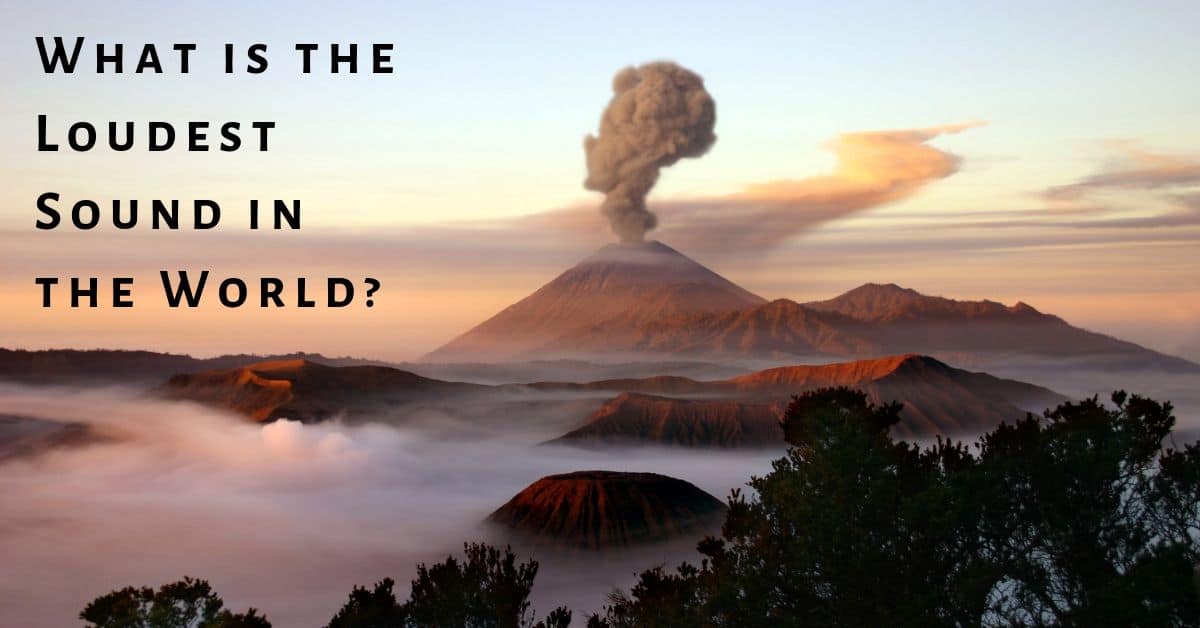
Whether you live in the city or in the countryside, we all experience different kinds of noises every day. These sounds are usually at comfortable volumes that do not harm our hearing. But when they’re too noisy, even for a short time, or when they’re both noisy and long lasting, sounds can be dangerous. These sounds can harm delicate inner ear structures and trigger noise-induced hearing loss (NIHL).
Noise is measured in units we call decibels (dB). Any noise above 85 decibels may trigger hearing loss, and the amount of damage is linked to both sound level and the duration of exposure. Put simply, the louder the sound, the less time you are able to be exposed to it before permanent hearing damage occurs.
Some of the loudest sounds ever heard
The world has experienced some very loud sounds in its history. Here are the loudest sounds ever, in order of decibel rating.
10. A Rock Concert: A rock concert by your favourite band can reach an ear-splitting 135-145 dB. No wonder some of the biggest rock and pop stars out there are complaining of tinnitus!
9. Fireworks: At the point of explosion, decibel levels from fireworks can reach 145-150 dB.
8. Gunfire: Be careful the next time you are hunting or at the firing range – A gunshot can reach up to 145-155 dB.
7. NHRA Dragsters: A dragster screaming down the raceway registers in at 155-160 decibels, loud enough to shake your body.
6. The Space Shuttle Launch: Unlike many other loud noises, the shuttle rocket sound reaches constant 165-170 dB as it creates the power to lift off the ground into space.
5. The Blue Whale: As well as the biggest, the blue whale is also the loudest animal in the world. Its mating call reaches levels up to 188 dB and can be heard for hundreds of miles underwater.
4. The Krakatoa volcanic eruption: Not only did it cause serious damage to the island, the eruption of Krakatoa in 1883 created the loudest sound ever reported at 180 dB. It was so loud it was heard 3,000 miles (5,000 km) away.
3. A 1-Ton TNT Bomb: An explosion from this bomb would measure 210 dB.
2. A 5.0 Richter Earth Quake: A strong earthquake such as this reaches a decibel level of 235.
1. The Tunguska Meteor: This was a huge explosion in Russia close the Tunguska River of Podkamennaya. It had the comparable effect of a 300-315 dB 1000-mega-ton bomb. This is often regarded as the loudest one-time event in history.
Damaging sounds are still with us everywhere, today
Although these sounds were indeed very loud, it doesn’t take a volcanic eruption to damage your hearing permanently. Many everyday sounds have the same potential, including: subway trains, the music in bars and clubs, and even extended unsafe earphone use.
Unlike other forms of hearing loss, this hearing damage can happen to anyone, young or old. Approximately 12.5% of kids and teenagers aged 6–19 years (around 5.2 million) and 17% of adults aged 20–69 years (around 26 million) have experienced permanent hearing loss from excessive noise exposure. Indeed, the World Health Organization have predicted that unsafe earphone use will be a major cause of noise-induced hearing loss in the future.
Preventing Noise-Induced Hearing Loss
Luckily, noise-induced hearing loss is completely preventable. In order to reduce the chances of damaging your hearing, here are some things you can do:
- Know that noise-induced hearing loss can lead to problems in communication, learning problems, ear pain or ringing (tinnitus), distorted or muffled hearing, and a failure to hear certain ambient sounds and signs warning you of danger.
- Identify common sources of loud sounds in one’s own day-to-day that can contribute to hearing loss.
- Adopt behaviors to protect your hearing in these situations, including lowering the volume of music systems, moving away from the source of loud sounds when you can, and using hearing protection devices where loud sounds cannot be prevented or reduced to a comfortable level.
- Get your hearing regularly evaluated by a licensed audiologist or other qualified professional, especially if you have noticed a change in your hearing.
Swift Audiology
Looking to safeguard your hearing against harmful noise? We offer custom protection to help protect your ears in whatever pastime you enjoy doing. Or, if you’re worried that you may have hearing loss, come and see us for a consultation and hearing test today.
